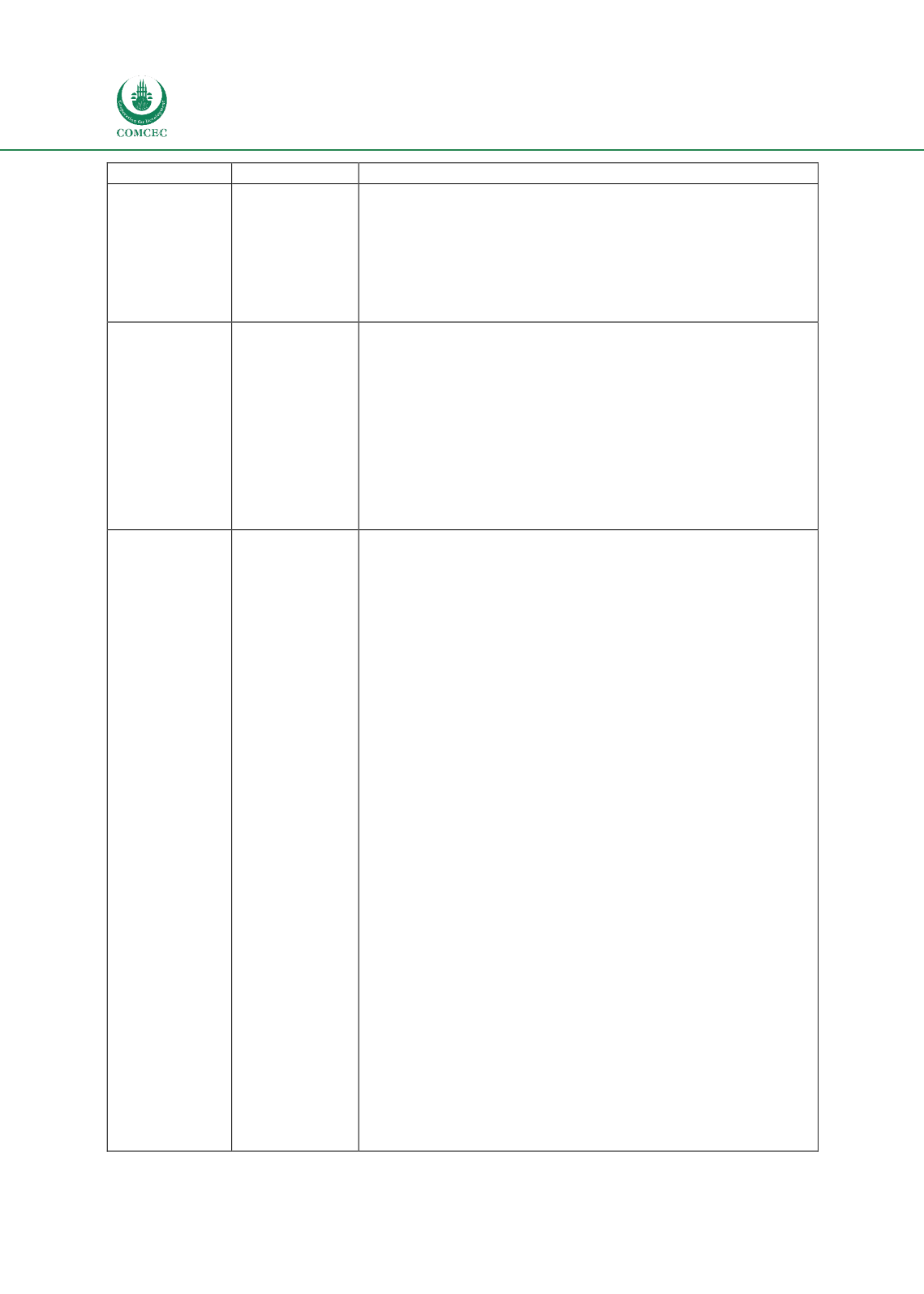

Improving Agricultural Market Performance
:
Creation and Development of Market Institutions
160
Classification Institution
Description
compulsory specifications and technical regulations. It enforces and
sets standard specifications for both locally produced and imported
frozen seafood and canned and processed meat and fish products.
NRCS also enforces regulations under the Trade Metrology Act,
ensuring that the most common measurements used in trade
transactions (mass, length, volume, number) are reliable, and that
measuring instruments are reliable and accurate.
State-Owned
Economic
Enterprise
South
Africa
Meat
Industry
Company
South Africa Meat Industry Company (SAMIC) is not a fully state-
owned economic enterprise but is DAFF’s assignee for the
classification and marking of meat intended for sale in South Africa.
SAMIC coordinators across the country perform independent audits of
quality indication marks used by farms, feedlots, abattoirs, deboning
plants, and wholesale and retail outlets. These marks, which are
registered with DAFF, certify provenance, farming standards, and
other indications of quality such as “Certified Karoo Meat of Origin,”
“Free Range Meat,” Grass-fed Meat,” and many others. Many of the
country’s leading grocery chains have their own marks reflecting
standards and specifications which are audited by SAMIC. SAMIC also
audits hides and skins, and trains and certifies meat classifiers.
Commodity
Exchange
Platform
Joburg Market
Joburg Market is South Africa’s largest wholesale produce market as
well as the largest in Africa and, possibly, the world, as measured by
volume. At 988,000 tonnes per year, the volume of produce sold at the
Joburg Market is second only to that of Rungis International in Paris
which is considered the largest produce market in the world, and
which deals in dairy and meat products as well as fruits and
vegetables. Wholly owned by the Johannesburg Municipal
Government, Joburg Market was corporatized in 2000, becoming
Johannesburg Fresh Produce Market (Pty) Ltd. It is governed by an
independent Board of Directors.
The Market serves about 5,000 farmers from across South Africa who
send their fresh produce to be traded to a large buyer base, averaging
about 10,000 daily. Trade takes place via a commission system with
the Market charging the producer a 5% commission on all sales made
on the commission floor. A further negotiable levy of 7.5% is paid to
market agents for selling produce on behalf of the farmer.
Trade takes place in three Foodhubs, namely: Fruit Hub, Potato &
Onion Hub, and Vegetable Hub, measuring a total of 65,000 m². As
value-adding services, the Market has 55 cold rooms, which can
accommodate 4,561 pallets of fresh produce, and 50 banana ripening
rooms, which can handle 1,590 pallets of bananas at any one time.
Joburg Market provides a wide range of services that support its core
function as a wholesale produce exchange. These include:
Assistance to emerging black farmers in reviving old pack
houses, building new pack houses, and obtaining packing
material. The Market provides food safety management
systems to these emerging farmers.
An Export Facilitation Desk to assist buyers of fresh produce
from SADC countries. The Joburg Market keeps a register of
enquiries received, provides information on how to buy from
the Market, and refers potential orders to export agents. It
also assists in compliance with South African Government
requirements, particularly inspections by the PPECB.


















